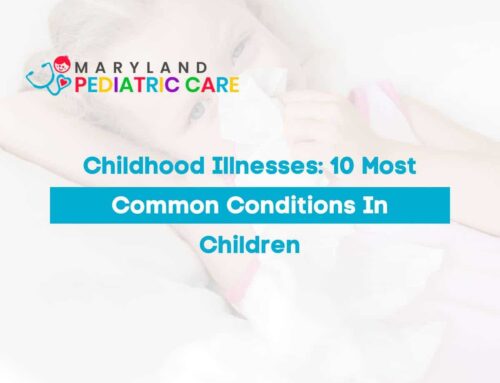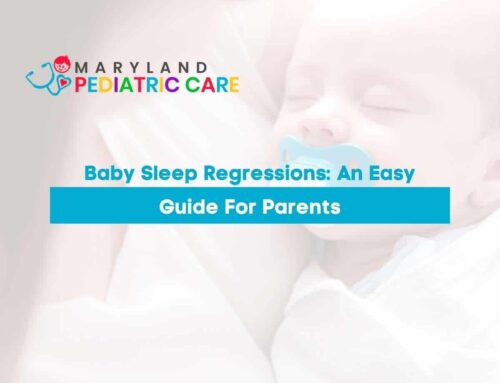Being Prepared For Your Child’s Asthma Attacks
A Guide On How To Help Your Kid When Having An Asthma Attack
It’s normal for parents to feel anxiety, uncertainty, or increased concern about their child after an asthma diagnosis. Although it’s true that some cases of asthma can become very severe in a short period of time, the vast majority of children can keep their flare-ups under control with the right precautions and treatments from their doctor. If your child has been diagnosed with asthma, your Germantown pediatrician will work with you to develop a comprehensive plan that includes preventative care, treatment for acute flare ups, and long-term strategies.
As a parent, here’s how you can be better prepared for your child’s asthma attacks:

Become Familiar With Your Child’s Asthma Action Plan
Your Damascus pediatric doctor will develop an action plan for your child after an asthma diagnosis which will include a combination of medical instructions and additional recommendations. It’s best to follow this plan closely to reduce your child’s risk of a severe asthma attack. An action plan will detail everything you need to know about helping your child, from which medication(s) your child should take and when, to what triggers should be avoided, to how to handle acute situations when they happen.
Both you and your child should become very familiar with this plan. Print it out and have it in a readily available place, such as on your refrigerator. Provide copies to teachers, babysitters, grandparents, and anyone else who may be caring for your child.
Take Medicines As Directed
There are two basic categories of asthma medication: fast acting relief for acute situations and preventative medications.
Quick relief medication options, such as albuterol or xopenex, are taken with an inhaler or nebulizer in order to get the medication directly into the airway and lungs during an asthma attack.
Preventative medicine, which is usually a capsule or liquid, is taken daily to help prevent flares as much as possible.
Depending on the severity of your child’s asthma, only quick relief medications may be needed. If your Gaithersburg pediatrician prescribes preventative medications, follow the daily schedule as directed for maximum effectiveness.
Have The Right Tools Available
In addition to prescription medications, purchase a peak flow meter and maintain a diary to help you better track your child’s health. A peak flow meter is a simple device that measures how well your child is releasing air from their lungs so you can determine whether their airway is inflamed. An asthma diary is a helpful tool for monitoring symptoms, treatments, and triggers that may be helpful in long-term management.
Know The Warning Signs
If your child has already experienced several asthma attacks, you probably can identify some of the early warning signs, which include:
- Frequent throat clearing
- Irregular or rapid breathing
- Chest tightness
- Increased difficulty breathing
- Mood or activity level changes
- Restlessness or a sense that something is wrong
- Coughing and wheezing
Each child’s symptoms are a little different. Over time, you and your child will begin to recognize their unique warning signs so you can head off asthma attacks as soon as they begin happening.
Develop a Plan For Severe Asthma Attacks
Although many asthmatic children never need to visit an ER, have a plan ready in case the symptoms ever become serious. You and anyone else who cares for your child should have quick relief medicine available at all times. This means you’ll need to have an inhaler readily available for the school nurse, coaches, babysitters, grandparents, and others. Whether you’re home or traveling, always know the location of the closest emergency room and have a plan of who you could call to care for your other children if needed.
Always seek immediate medical attention if your child shows any of the following symptoms:
- Blue or gray lips or fingernails
- Flared nostrils
- Persistent breathlessness or wheezing that does not improve within 5-10 minutes of the second dose of medication
- Peak flow approaching or falling belong 50%
- Unusual paleness
- Unexplained sweating
- Extreme difficulty speaking, walking, or playing
- Skin sinking inward between the ribs or neck
- Hunched posture
- Unexplained vomiting
Avoid Identified Triggers
Everyone’s triggers are unique, but the most common include:
- Pollen
- Mold
- Animals
- exercise or other intense activities
- weather changes
- cold air
- tobacco smoke
- perfume or artificial fragrances
- viral or respiratory infections
Because asthma and allergies are frequently related, your Germantown pediatric doctor will probably recommend allergy testing.
Team Up With Your Child
Your child is more likely to take control of their health and develop good habits if they are actively involved. Make sure they are included during your planning and work together to create effective monitoring and safety strategies.
Do You Have Questions About Your Child’s Asthma?
Schedule an appointment today with Maryland Pediatric Care. Dr. Malik is ready to help you feel confident in managing your child’s asthma, from diagnosis and treatment plans to long term care. We accept most insurance plans and offer convenient weekend appointments along with same-day sick visits. Let us provide your child with the highest quality medical care for peace of mind and symptom relief. Call our office today!

Maryland Pediatric Care
19525 Doctors Drive,
Germantown, MD 20874
Phone: 301-424-2400
Email: [email protected]
Mon, Tue, Thu, Fri: 8:00am – 5:00pm
Wednesday: 8:00am – 1:00pm
Every second Saturday of month
(9:00am – 11:30Am)





